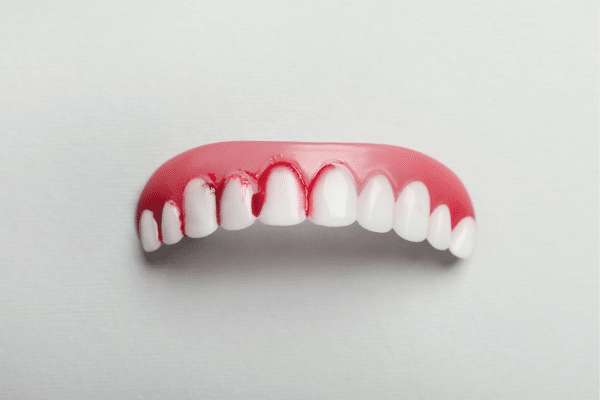Vitamins play a crucial role in maintaining optimal health, yet their importance is often overlooked until noticeable symptoms arise. This blog post delves into the signs that might indicate a deficiency in essential vitamins. From hair loss to mood swings, understanding these symptoms can be the first step toward addressing nutritional gaps and restoring balance. Each section below highlights a different symptom, shedding light on its potential link to vitamin deficiencies and offering practical advice to combat these issues.
Contents
Hair Loss

Hair loss can be distressing and is often a sign that the body is missing key nutrients. Vitamins such as biotin, Vitamin D, and certain B vitamins are integral for healthy hair growth. When the body lacks these nutrients, the hair follicles may not receive sufficient nourishment, leading to weakened hair and eventual loss. Additionally, inadequate iron levels, often unnoticed, can contribute to hair shedding, making a balanced diet crucial for maintaining lush, healthy locks.
Addressing hair loss involves more than just topical treatments; it requires a holistic approach to nutrition. Including foods rich in biotin (such as eggs, nuts, and seeds), Vitamin D (fatty fish, fortified foods), and iron (leafy greens, red meat) can help restore hair strength and vitality. For some, supplementation may be necessary, but it’s essential to seek guidance from a healthcare professional to ensure the right dosage and to prevent any potential interactions with other medications.
Fatigue

Persistent fatigue often signals that the body’s nutrient reserves are depleted, particularly concerning certain vitamins. Vitamin B12 and Vitamin D are paramount in energy production and deficiency in these vitamins can lead to a constant feeling of tiredness, regardless of sleep duration. These vitamins play critical roles in metabolic pathways that convert food into energy, highlighting the importance of a nutrient-rich diet for maintaining vitality and alertness throughout the day.
Combatting fatigue begins with examining and adjusting one’s diet. Foods rich in Vitamin B12, such as meats, dairy, and fortified cereals, alongside Vitamin D sources like fatty fish, fortified dairy products, and sensible sun exposure, can significantly impact energy levels. However, it’s crucial to recognize that fatigue can stem from various sources, not just vitamin deficiencies. Consulting healthcare professionals for persistent tiredness ensures a comprehensive approach to identifying and addressing the underlying causes.
Getting Sick Often

Frequent illnesses can be a tell-tale sign of a compromised immune system, often linked to inadequate vitamin intake. Vitamins, particularly Vitamin C and Vitamin D, are pivotal for immune defense. Vitamin C, abundant in fruits and vegetables, is known for its antioxidant properties and role in cellular functions of the immune system. Similarly, Vitamin D, synthesized from sunlight exposure and absorbed from certain foods, is essential for immune regulation and function.
Enhancing the immune system through diet involves incorporating a variety of vitamin-rich foods. Citrus fruits, berries, and leafy greens are excellent sources of Vitamin C, while fatty fish, egg yolks, and fortified foods provide Vitamin D. However, the body’s ability to absorb and utilize these vitamins can be influenced by various factors, including age, lifestyle, and existing health conditions. Therefore, a tailored approach, sometimes including supplementation under medical supervision, may be necessary to bolster the immune system effectively.
Bleeding Gums

Bleeding gums are not just a dental issue; they can also be a harbinger of vitamin deficiency, particularly of Vitamin C. This essential nutrient, vital for gum health, helps in the formation of collagen, a key component of gum tissue. Insufficient Vitamin C intake can weaken gums, making them more susceptible to bleeding and other periodontal diseases. Moreover, this vitamin’s antioxidant properties are crucial for fighting infections and healing wounds in the oral cavity.
To mitigate gum bleeding and enhance oral health, incorporating Vitamin C-rich foods into the diet is imperative. Citrus fruits, strawberries, kiwi, and bell peppers are excellent sources that can bolster gum strength and integrity. Additionally, maintaining good oral hygiene and regular dental check-ups are crucial for early detection and treatment of gum issues. However, if bleeding persists, it’s essential to consult a healthcare professional to rule out other potential causes and ensure a comprehensive approach to oral health.
Brittle Fingernails

Brittle fingernails can often reflect more than mere cosmetic concerns; they may indicate deficiencies in specific vitamins and minerals. Lack of biotin, a B-complex vitamin, and Vitamin C, known for its role in collagen formation, can result in weak, easily broken nails. These nutrients are essential for nail growth and strength, underscoring the importance of a well-rounded diet to maintain healthy nails.
Addressing brittle nails involves more than external treatments; it requires nourishing the body from within. Including biotin-rich foods like eggs, nuts, and legumes, along with Vitamin C sources such as citrus fruits and leafy greens, can significantly improve nail health. However, lifestyle factors, including exposure to harsh chemicals and frequent water immersion, can also affect nail strength. Therefore, protective measures, alongside a balanced diet, are vital for maintaining strong, healthy nails.
Muscle Pain

Muscle pain can be a vexing issue, often linked to physical strain, but it can also be a symptom of vitamin deficiency, especially of Vitamin D. This vitamin is crucial for bone health and muscle function, and its deficiency can lead to discomfort and pain in muscles, affecting mobility and quality of life. Vitamin D is unique in that the body synthesizes it when exposed to sunlight, but it can also be absorbed from dietary sources.
To alleviate muscle pain associated with vitamin deficiency, ensuring adequate Vitamin D intake is essential. This can be achieved through a combination of dietary sources like fatty fish and fortified foods, sensible sun exposure, and, in some cases, supplementation under medical guidance. However, it’s crucial to recognize that muscle pain can have various origins. Therefore, persistent discomfort should be evaluated by a healthcare professional to determine the exact cause and appropriate treatment.
Mood Changes

Mood changes, often dismissed as merely psychological, can sometimes be rooted in nutritional deficiencies, particularly of certain B vitamins and Vitamin D. These nutrients are crucial for brain health and the production of neurotransmitters, which regulate mood. Deficiencies can lead to feelings of depression, anxiety, and general mood instability, affecting daily life and well-being.
Addressing mood changes involves a holistic approach, starting with a diet rich in B vitamins and Vitamin D. Leafy greens, whole grains, and lean proteins are excellent sources of B vitamins, while fatty fish, egg yolks, and fortified foods can provide Vitamin D. However, mood disorders are complex and can have multiple causes, so it’s important to seek professional advice. A healthcare provider can offer a comprehensive approach, considering both nutritional and psychological aspects, to manage mood changes effectively.
The Bottom Line
Recognizing and addressing vitamin deficiencies is pivotal for maintaining optimal health. Symptoms like hair loss, fatigue, frequent sickness, bleeding gums, brittle nails, muscle pain, and mood changes can all signal nutritional gaps that need attention. A balanced diet, rich in essential vitamins and minerals, is the cornerstone of good health. However, when symptoms persist, it’s crucial to consult healthcare professionals. They can provide tailored advice and treatment, ensuring that both the symptoms and their underlying causes are adequately addressed, paving the way for a healthier, more vibrant life.


